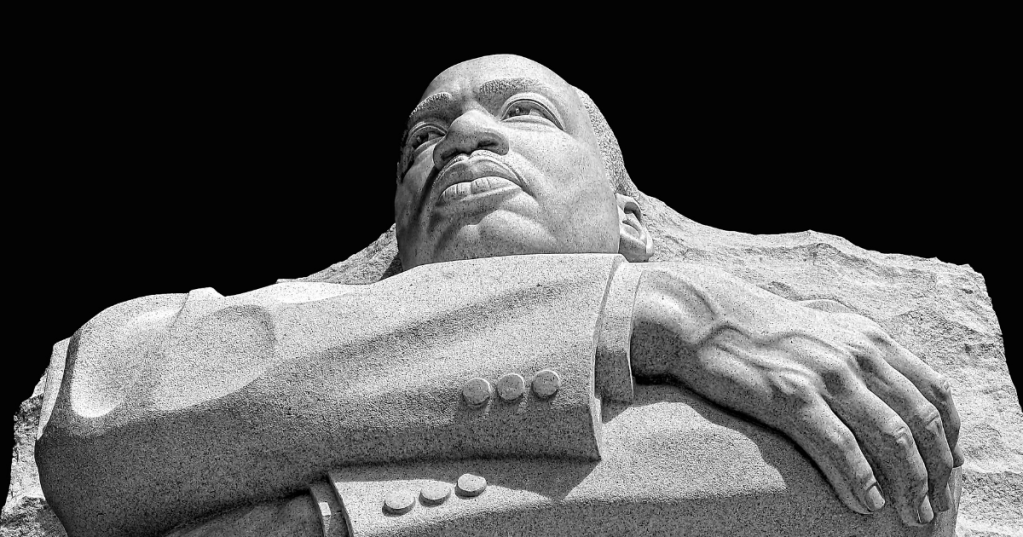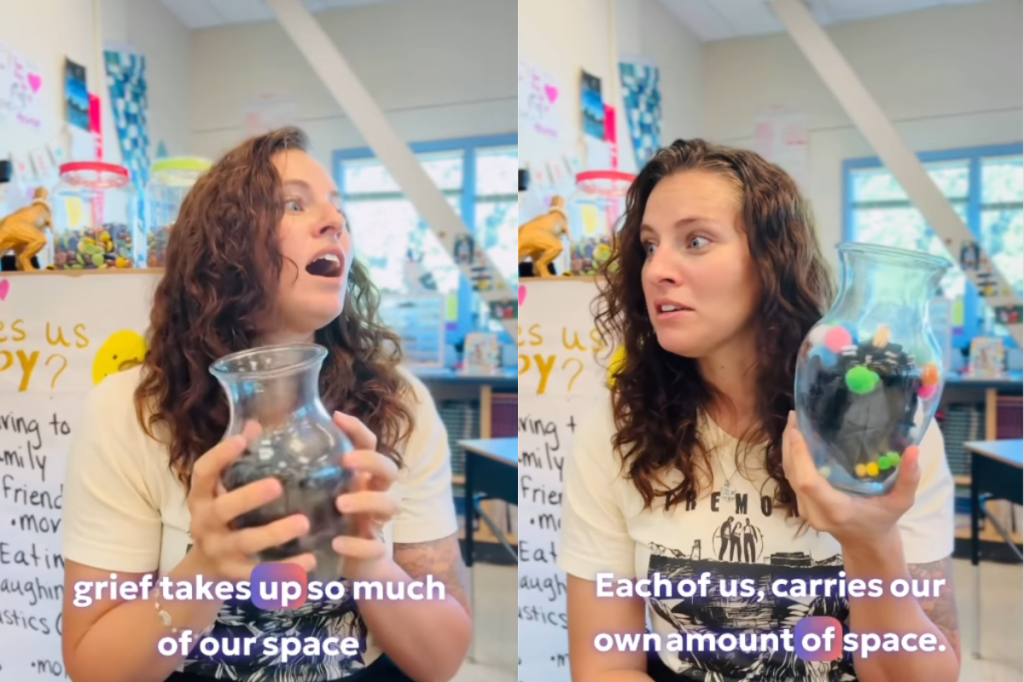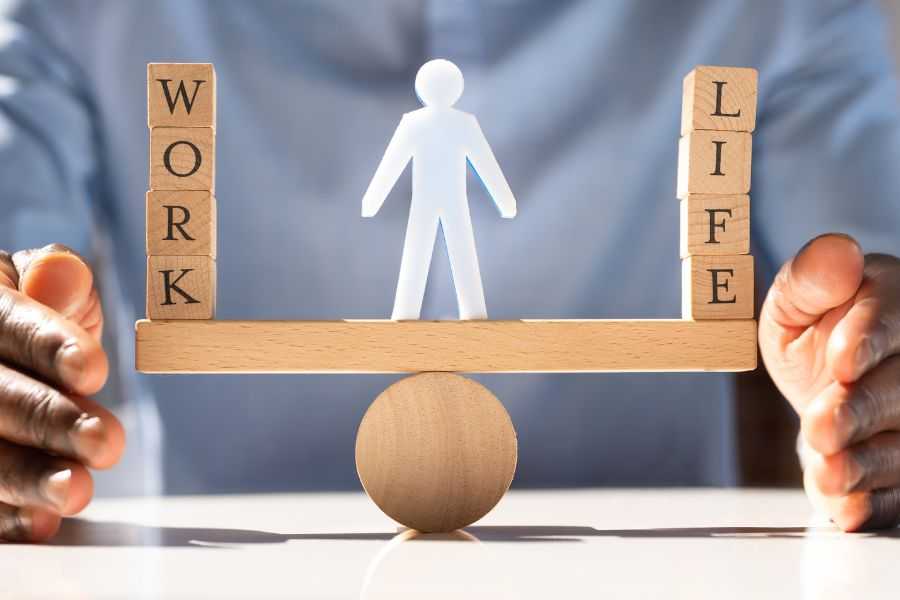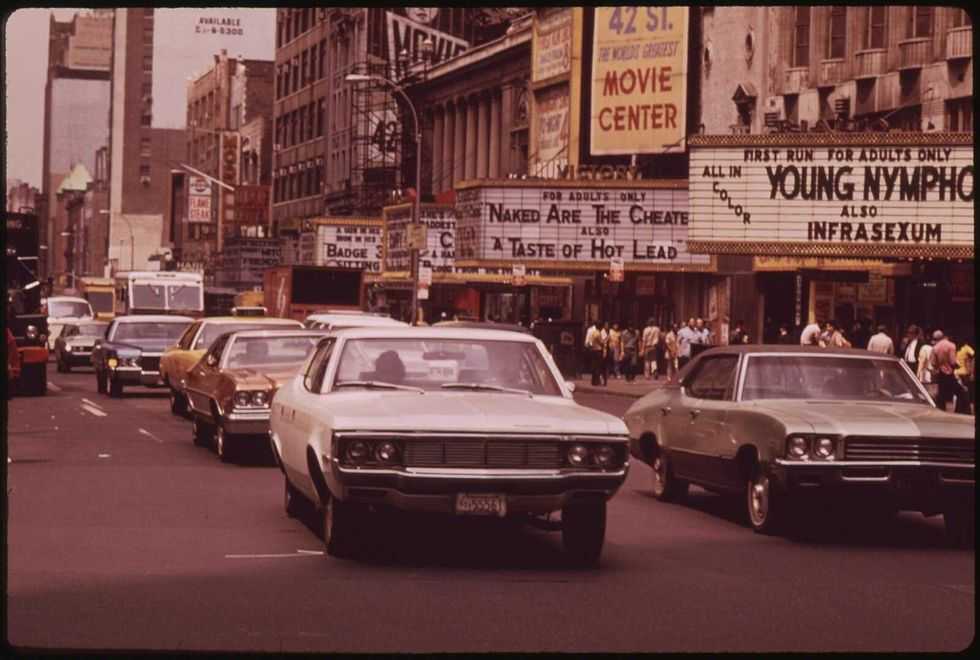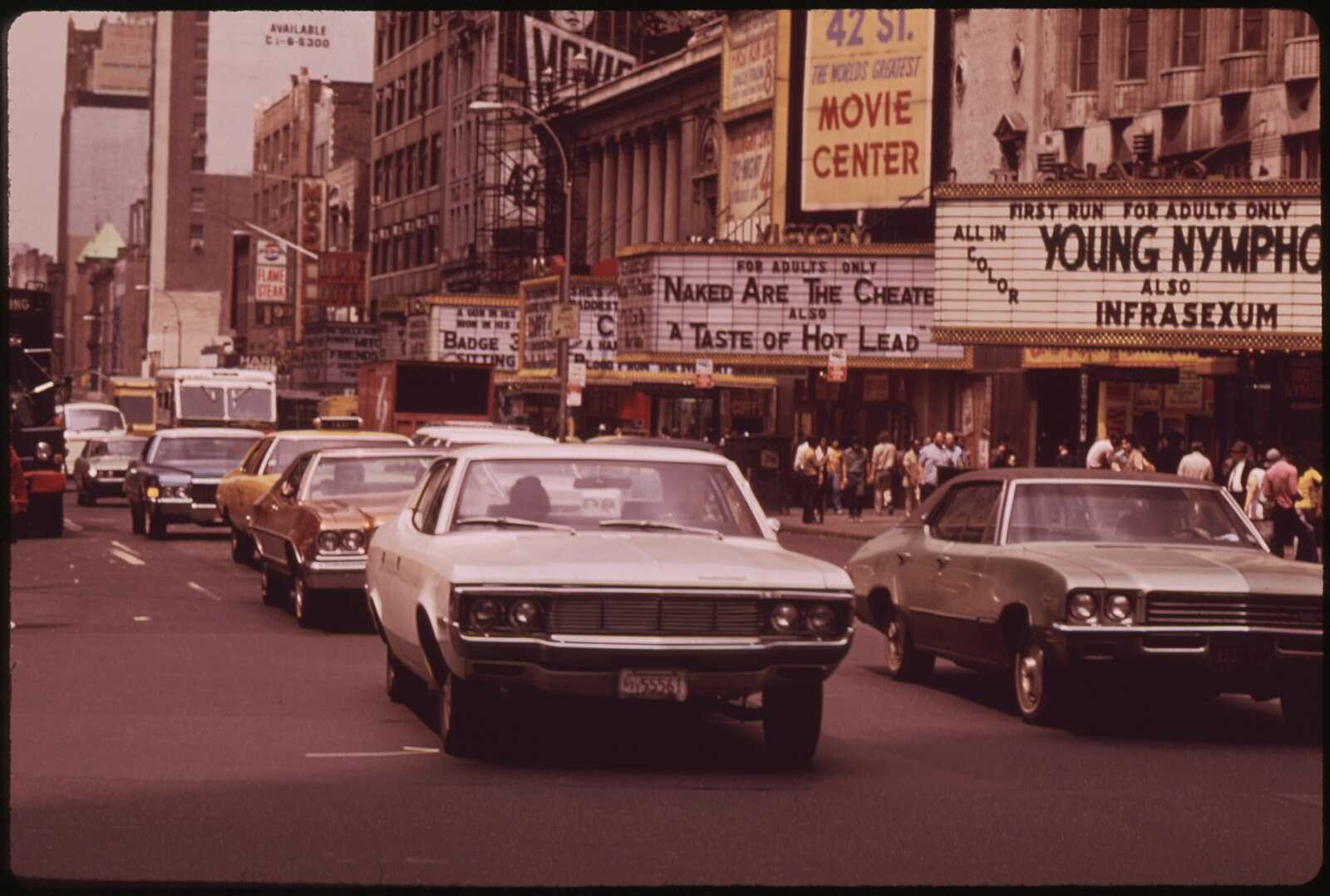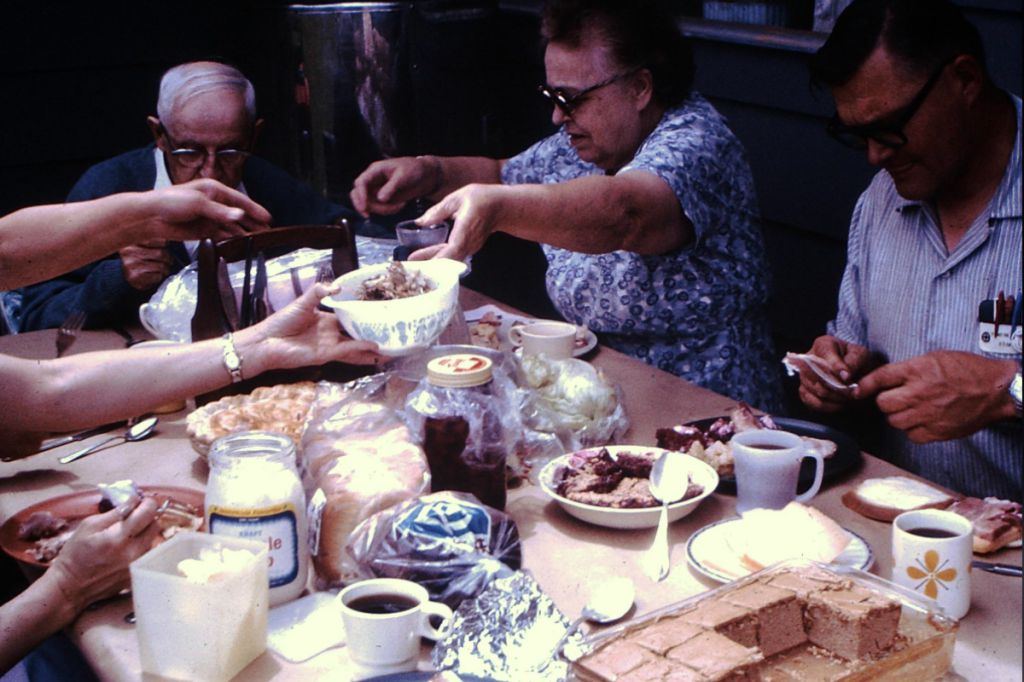Every year around Martin Luther King, Jr. Day, social media feeds get flooded with memes bearing Dr. King’s face and words—snapshots of the man with a snippet of his message, wrapped neatly in a square package, easily digested by the masses.
We get bombarded by the “not by the color of their skin, but by the content of their character” quote we all know and love. We get hit with “darkness cannot drive out darkness” memes that keep us feeling cozy in our comfort zones. We see “I have decided to stick with love. Hate is too great a burden to bear,” over and over, and nod our heads in placid agreement. People of all stripes share MLK quotes that give us all the warm fuzzies, and we think, “Wow, what an amazing, peaceful, universally beloved man.”

But there are two big problems with such memes.
1) Sharing one or two sentences drastically dilutes Dr. King’s legacy, turning his core message into a socially neutral, politically palatable, let’s-all-hold-hands-and-skip-together philosophy—one that challenges no one and betrays the radical reality of his work.
2) Such a whitewashing of King’s message enables people to share his words in a way that actually upholds or overlooks the very injustices he was trying to fight.
RELATED: Steve Bannon claimed MLK would be proud of Trump. King’s daughter shut him down.
For example, I’ve seen people say that people should be “judged not by the color of their skin but by the content of their character” as an argument against Affirmative Action-type programs. I’ve seen people say “hate cannot drive out hate” while mischaracterizing a calling out of racial injustice as hatred. I’ve seen people quote King’s “I have a dream” speech while asserting that talking about racism just perpetuates racism—an assertion King simply didn’t abide.
People frequently twist King’s words to fit their worldview, and in doing so, dishonor the man and his fight for true justice. The radical nature of his message seems to have been watered down into what people think he was—a gentle leader who advocated a non-violent approach to fighting for equality—instead of what he actually was—a passionate disrupter who constantly pushed boundaries and pulled no punches when calling out injustices of all kinds. Many Americans today would undoubtedly call him a “race-baiter” at best, and an “extremist thug” at worst.
We mustn’t forget that King was considered a radical and a criminal, by both the U.S. government and much of mainstream America, during his lifetime. At the height of his activism, nearly two-thirds of Americans had an unfavorable opinion of King. And that disapproval didn’t just come from the openly racist South. After being hit with a rock at a desegregation march in Chicago, King remarked, “I have seen many demonstrations in the South, but I have never seen anything so hostile and so hateful as I’ve seen here today.”
King had strong words for those of us who think we’re not racist. When I first read King’s Letter from a Birmingham Jail—his response to a group of clergymen who agreed with his antiracism sentiments but criticized his “extreme” methods—I was blown away. I remember thinking that my education about Dr. King had been sorely lacking, that I’d never learned how much criticism he’d faced and how frequently he was considered an extremist by white moderates, and that I had no idea how he had directly challenged white Americans of goodwill. (In other words, people like me.)
The least we can do to honor King’s life is to go beyond popular one-liners, take the time to read one of his most important works, and to meditate on the challenges he presented to us. You can read King’s Letter from a Birmingham Jail in its entirety here, but I’ve included some excerpts below that highlight some of its main points.
For example, this passage explaining how peaceful activism doesn’t mean avoiding tension and crisis:
“You may well ask: ‘Why direct action? Why sit ins, marches and so forth? Isn’t negotiation a better path?’ You are quite right in calling for negotiation. Indeed, this is the very purpose of direct action. Nonviolent direct action seeks to create such a crisis and foster such a tension that a community which has constantly refused to negotiate is forced to confront the issue. It seeks so to dramatize the issue that it can no longer be ignored. My citing the creation of tension as part of the work of the nonviolent resister may sound rather shocking. But I must confess that I am not afraid of the word ‘tension.’ I have earnestly opposed violent tension, but there is a type of constructive, nonviolent tension which is necessary for growth. Just as Socrates felt that it was necessary to create a tension in the mind so that individuals could rise from the bondage of myths and half truths to the unfettered realm of creative analysis and objective appraisal, so must we see the need for nonviolent gadflies to create the kind of tension in society that will help men rise from the dark depths of prejudice and racism to the majestic heights of understanding and brotherhood. The purpose of our direct action program is to create a situation so crisis packed that it will inevitably open the door to negotiation.”
RELATED: Ad execs probably should have read the full MLK speech before making that commercial.
Or this passage about the “timing” of taking action against injustice:
“We know through painful experience that freedom is never voluntarily given by the oppressor; it must be demanded by the oppressed. Frankly, I have yet to engage in a direct action campaign that was ‘well timed’ in the view of those who have not suffered unduly from the disease of segregation. For years now I have heard the word ‘Wait!’ It rings in the ear of every Negro with piercing familiarity. This ‘Wait’ has almost always meant ‘Never.’ We must come to see, with one of our distinguished jurists, that ‘justice too long delayed is justice denied.’”
Many people who praise Dr. King would have called him a criminal if he were still alive today, as he advocated breaking unjust laws:
“One may well ask: ‘How can you advocate breaking some laws and obeying others?’ The answer lies in the fact that there are two types of laws: just and unjust. I would be the first to advocate obeying just laws. One has not only a legal but a moral responsibility to obey just laws. Conversely, one has a moral responsibility to disobey unjust laws. I would agree with St. Augustine that ‘an unjust law is no law at all.’”
He added that a just law can sometimes be applied unjustly, and that how one violates a law matters:
“Sometimes a law is just on its face and unjust in its application. For instance, I have been arrested on a charge of parading without a permit. Now, there is nothing wrong in having an ordinance which requires a permit for a parade. But such an ordinance becomes unjust when it is used to maintain segregation and to deny citizens the First-Amendment privilege of peaceful assembly and protest.
I hope you are able to see the distinction I am trying to point out. In no sense do I advocate evading or defying the law, as would the rabid segregationist. That would lead to anarchy. One who breaks an unjust law must do so openly, lovingly, and with a willingness to accept the penalty. I submit that an individual who breaks a law that conscience tells him is unjust, and who willingly accepts the penalty of imprisonment in order to arouse the conscience of the community over its injustice, is in reality expressing the highest respect for law.”
In addition, he pointed out that some of history’s most unjust acts were legal, while some of the most righteous acts were illegal:
“We should never forget that everything Adolf Hitler did in Germany was ‘legal’ and everything the Hungarian freedom fighters did in Hungary was ‘illegal.’ It was ‘illegal’ to aid and comfort a Jew in Hitler’s Germany. Even so, I am sure that, had I lived in Germany at the time, I would have aided and comforted my Jewish brothers. If today I lived in a Communist country where certain principles dear to the Christian faith are suppressed, I would openly advocate disobeying that country’s antireligious laws.”
One of the most important points King makes in this letter is how white moderates who put law and order over justice do as much, if not more, harm to the cause of justice as outright racists:
“I must confess that over the past few years I have been gravely disappointed with the white moderate. I have almost reached the regrettable conclusion that the Negro’s great stumbling block in his stride toward freedom is not the White Citizen’s Counciler or the Ku Klux Klanner, but the white moderate, who is more devoted to ‘order’ than to justice; who prefers a negative peace which is the absence of tension to a positive peace which is the presence of justice; who constantly says: ‘I agree with you in the goal you seek, but I cannot agree with your methods of direct action’; who paternalistically believes he can set the timetable for another man’s freedom; who lives by a mythical concept of time and who constantly advises the Negro to wait for a ‘more convenient season.’ Shallow understanding from people of good will is more frustrating than absolute misunderstanding from people of ill will. Lukewarm acceptance is much more bewildering than outright rejection.
I had hoped that the white moderate would understand that law and order exist for the purpose of establishing justice and that when they fail in this purpose they become the dangerously structured dams that block the flow of social progress. I had hoped that the white moderate would understand that the present tension in the South is a necessary phase of the transition from an obnoxious negative peace, in which the Negro passively accepted his unjust plight, to a substantive and positive peace, in which all men will respect the dignity and worth of human personality. Actually, we who engage in nonviolent direct action are not the creators of tension. We merely bring to the surface the hidden tension that is already alive. We bring it out in the open, where it can be seen and dealt with. Like a boil that can never be cured so long as it is covered up but must be opened with all its ugliness to the natural medicines of air and light, injustice must be exposed, with all the tension its exposure creates, to the light of human conscience and the air of national opinion before it can be cured.”
How about this bit about “the appalling silence of the good people”?
“We will have to repent in this generation not merely for the hateful words and actions of the bad people but for the appalling silence of the good people. Human progress never rolls in on wheels of inevitability; it comes through the tireless efforts of men willing to be co workers with God, and without this hard work, time itself becomes an ally of the forces of social stagnation. We must use time creatively, in the knowledge that the time is always ripe to do right.”
And finally, some words about law and order and the role of the police in “preventing violence”:
“Before closing I feel impelled to mention one other point in your statement that has troubled me profoundly. You warmly commended the Birmingham police force for keeping ‘order’ and ‘preventing violence.’ I doubt that you would have so warmly commended the police force if you had seen its dogs sinking their teeth into unarmed, nonviolent Negroes. I doubt that you would so quickly commend the policemen if you were to observe their ugly and inhumane treatment of Negroes here in the city jail; if you were to watch them push and curse old Negro women and young Negro girls; if you were to see them slap and kick old Negro men and young boys; if you were to observe them, as they did on two occasions, refuse to give us food because we wanted to sing our grace together. I cannot join you in your praise of the Birmingham police department…
I wish you had commended the Negro sit inners and demonstrators of Birmingham for their sublime courage, their willingness to suffer and their amazing discipline in the midst of great provocation. One day the South will recognize its real heroes.”
As King’s daughter, Bernice, pointed out on his birthday, January 15, “The authentic, comprehensive King makes power uneasy & privilege unhinged.” Such a description makes one wonder how Dr. King would be regarded today if he had lived and continued to directly call out the racial injustice that still exists in our society.

